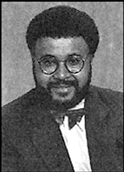Federal judge imposes prior restraint on speech in Maryland sex ed case
In a decision that seems strangely ignorant of basic First Amendment principles, a federal judge in Maryland has issued a temporary restraining order against a school district that was about to implement a new, non-mandatory sex education curriculum in some of its eighth and tenth grade classes.
The May 5 ruling by Judge Alexander Williams, Jr., a Clinton court appointee, takes the odd position that a group of objecting parents have standing to halt a curriculum adopted by an elected school board—even though they are free to opt their children out of any exposure to the sex education lessons—based on a First Amendment right to have their dissenting point of view represented in the curriculum.
This case arising in Montgomery County is even stranger when one considers the curriculum itself, or at least those portions quoted in Williams’ opinion. Assuming the judge is citing them accurately, the curriculum seems clumsily written, at times factually erroneous and makes blatantly political statements one wouldn’t expect in a health education curriculum adopted by a school board. In fact, it seems calculated to provoke exactly the sort of angry response that it did, given the context of current-day culture wars.
But the serious flaws in the curriculum are of no relevance to the First Amendment claims the plaintiffs brought.
There are two plaintiffs in the case—Citizens for a Responsible Curriculum, formed specifically to bring the lawsuit, and claiming to represent Montgomery County taxpayers, parents and students; and Parents and Friends of Ex-Gays and Gays, an organization dedicated to urging gay people to seek reparative therapy to change their sexual orientation. Both groups oppose the new curriculum because it disparages such clinical attempts to change sexual orientation, treats homosexuality as a perfectly natural thing and is critical of those who take an opposing viewpoint on religious grounds, specifically the Southern Baptist Church.
The development of the new health curriculum resulted from a Citizens Advisory Committee’s November 2002 recommendation that “sexual variation” be incorporated into teaching materials. Prior to that time, Montgomery County schools took the approach that controversy would be avoided by having teachers refrain from discussing homosexuality. The new curriculum boldly interjects the schools into the debates about homosexuality by taking a firm position that the “sickness” and “choice” theories of homosexuality are wrong. It asserts that homosexuality is not immoral, that many progressive religious groups do not condemn homosexuality and it compares congregations that do to those that supported racial segregation by reliance on the Bible.
The plaintiffs’ case rested on two theories. First, they contended that the curriculum’s adoption amounted to an “establishment of religion” by taking sides on existing religious debates about homosexuality.
The plaintiffs also argued that the curriculum violates their rights of free speech by excluding their point of view on a controversial topic.
Williams found sufficient merit to these propositions to justify issuing a temporary restraining order against the curriculum’s implementation, pending a full hearing on the merits. Such restraining orders are to be issued only when there is a high degree of likelihood that plaintiffs will prevail on the merits and that they will suffer irreparable injury if the order is not given. In effect, Williams is saying that private, unelected groups have a right to decide what the curriculum should say.
Normally, a party seeking injunctive relief against the government is required to show that they are personally harmed by the government’s proposed action. But recognizing that some parents might object to the new curriculum, the school board specifically provided an opt-out for any objecting student. Williams, then, is at least preliminarily accepting the plaintiffs’ argument that they are personally harmed if other people’s children are exposed to a curriculum that does not include their point of view.
If such principles were accepted, the public school system in this country could become unworkable, as every dissenting group that had any objection to the content of any curriculum would be entitled to insist on the inclusion of their views, and to get the curriculum blocked if the school board refused. This would require, for example, the inclusion of so-called creation science, something that federal appellate courts have uniformly rejected. And it would make it nearly impossible for school curricula to address any topic on which there was substantial disagreement in society in any but the most general and watered-down terms.
It will be interesting to see whether Williams backs off when confronted with a full argument on the merits, and if not, how the issue will play out at the appellate level.
In the meantime, the culture wars around homosexuality and the schools seem poised to provoke startling developments in First Amendment law.
gaycitynews.com
































